Contents
Onions are grown, probably, by all summer residents of Our Country without exception. Not only is this garden crop very unpretentious, but onions are also very important – almost no popular dish can be imagined without it, besides, the vegetable contains a lot of vitamins and is necessary for the body to strengthen immunity. Despite the simplicity of the process, summer residents often ask themselves: “Am I growing onions correctly, or can something be done to make the harvest even better and the bulbs larger?”.
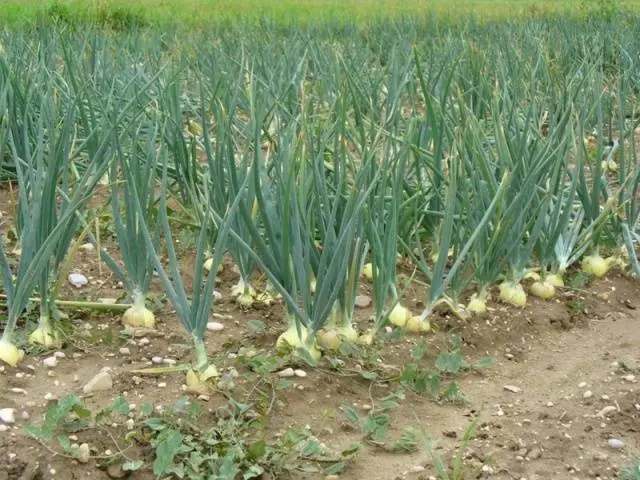
You can learn how to plant onions in the open field and how to care for them, as well as how to grow large onions in your own country house, from this article.
Culture features
The most common type of onion crop is onion. This vegetable has a spherical, slightly flattened or elongated shape, its scales can be colored red, orange or white. Depending on this, the taste of the onion also differs, as follows:
- red onion – sweet;
- orange – sharp;
- white – semi-sweet.
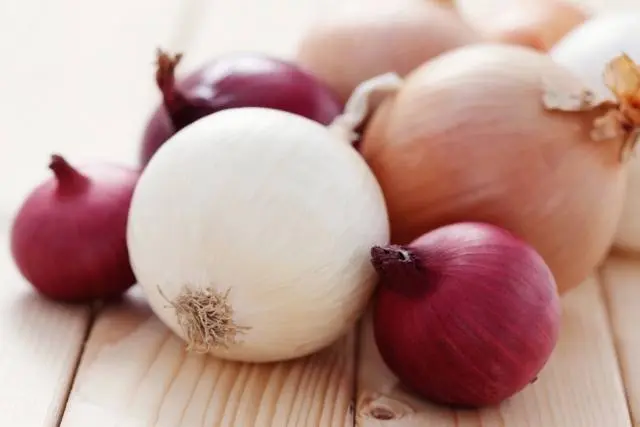
First of all, the gardener must decide on the variety of vegetable crops. Varieties of onion, as a rule, are zoned, among them you can find species intended for winter cultivation, such varieties of onions that are planted directly from seeds and other varieties.
The culture is propagated by seeds that ripen in umbellate inflorescences on thick and long stems. These stems are called shooters, in the usual cultivation of onions on a head, they try to prevent shooting by any means. This is due to the fact that a flowering plant will not give a strong and large bulb – the crop will be spoiled.
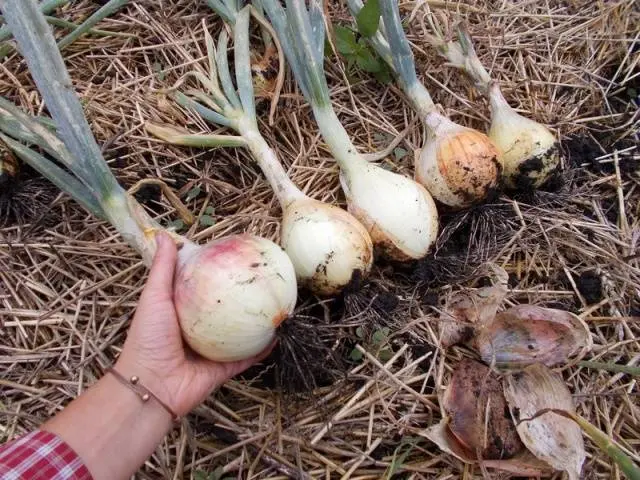
Onion seeds are colored black and have a rounded or slightly pointed shape. In the first year, nigella is sown in the ground, from which sevok grows – small onions, about one centimeter in diameter. To get full-fledged bulbs, you need to plant this set next season.
When and how to plant onions in open ground
First of all, you need to decide when to plant onions in the garden. It is definitely worth doing this only when the soil in the summer cottage has warmed up to at least 12 degrees.
If you plant or sow onions in cold ground, this will inevitably lead to the shooting of plants and a deterioration in the crop yield subsequently.
In most regions of the country, onions are planted in beds in the spring, usually in early May. However, there is also a winter way of growing this crop, which is often used by experienced farmers – it will also be discussed in the article.
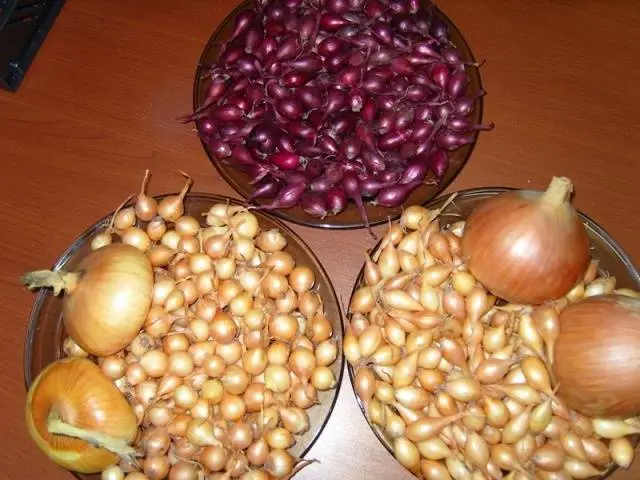
The method of growing onions in open ground largely depends on the climatic features of the region, on the duration of summer, average temperature and other weather factors.
Depending on this, growing onions can be done in several ways:
- Planting onions with seeds – growing onions in an annual crop.
- The method of sowing nigella for seedlings and its subsequent transplantation into open ground.
- Cultivation in a two-year culture – first nigella is sown, then the resulting seed is planted to obtain large bulbs.
All these methods have their own characteristics, so it is worth familiarizing yourself with them in more detail.
How to grow onions from blackberries
Only summer residents who live in the southern regions of Our Country, with long and hot summers, can grow onions in an annual crop.
In order to maintain high-quality seedlings until spring, it is necessary to provide it with a suitable temperature and humidity regime, regularly discard damaged bulbs, and so on.
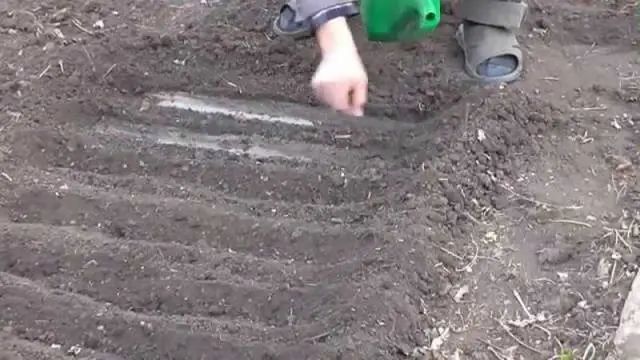
Of the varieties of onions for annual cultivation, sweet and semi-sweet crops are most suitable., which, as a rule, are distinguished by red or white husks. It is these bulbs in the form of sets that are the worst preserved at the stage of winter storage, in order to save planting material, gardeners try to grow such varieties in one year – directly from seeds.
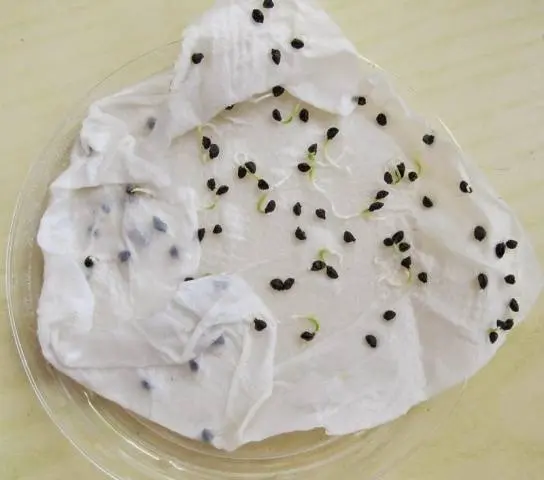
They do it like this:
- soak the nigella or place it in a damp cloth for a couple of days;
- prepare the beds, fertilizing them with complex mineral fertilizers;
- water the earth with a solution of copper sulfate or potassium permanganate;
- make holes, about 1,5-2 cm deep, observing the distance between rows – approximately 13-15 cm;
- sow blackberries;
- water rows from a watering can through a divider;
- cover the planting with a dense plastic film;
- when the greens hatch, the film is removed;
- now you need to thin out the crops, leaving 2-3 cm between plants;
- it is better to mulch the site with rotted humus to prevent the soil from drying out and the appearance of weeds;
- after 2-3 weeks thinning is repeated, the final interval between plants should be 6-8 cm.
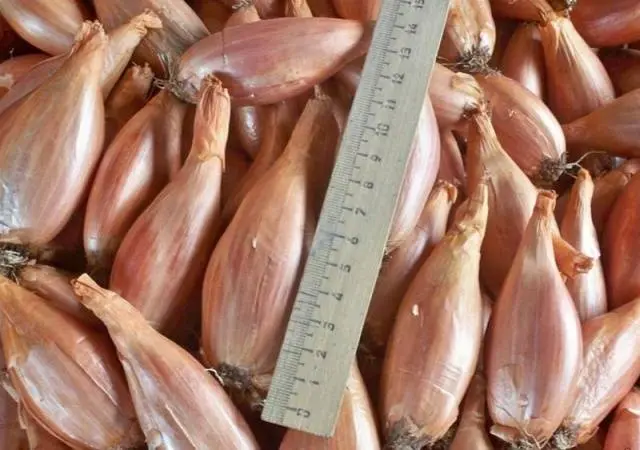
It will not be possible to grow a very large onion in this way, but with proper care, sufficient fertilizer and watering, and also if fungal diseases can be prevented and crop pests eliminated, a quite decent crop can be grown from seeds.
The most important thing is that this can be done in just one season and not spend money on buying sets.
How to grow onions outdoors from seedlings
The seedling method is rarely used when growing such a simple crop as onions. However, this option is most suitable for some valuable and rare varieties of crops, because the seeds of such plants can be very expensive – the task of the summer resident is to preserve planting material as much as possible.
The painstaking process of growing onion seedlings is in many ways similar to seedling cultivation of other garden crops. First of all, you need to prepare the substrate; nutritious, slightly acidic soils with good air permeability are more suitable for nigella.
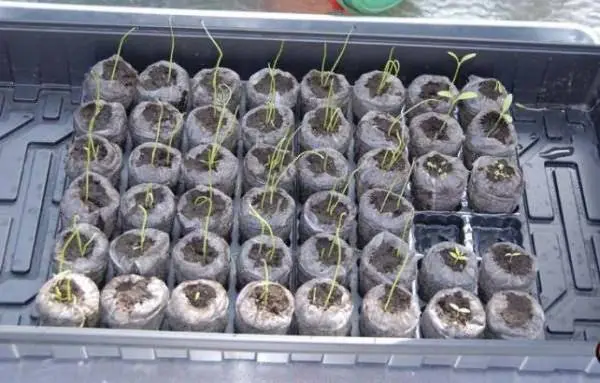
The earth is poured into boxes and grooves are made, about 1 cm deep. The distance between the rows should be about 4-5 cm. It is necessary to sow onion seeds 50-60 days before it is supposed to transfer seedlings to open ground. Seeds are sown densely, as the plants grow, they need to be thinned out so that they are strong and tall.
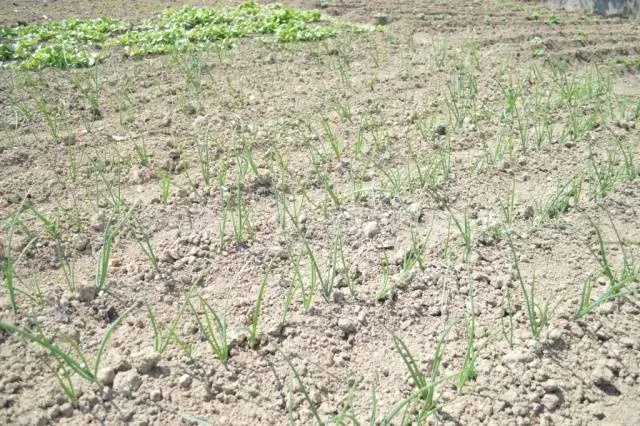
Onion seedlings, in principle, tolerate transplantation well, quickly acclimatize and take root in a new place.
How to grow a good onion crop the traditional way
Traditionally and more often, onions are grown as a two-year crop: in the first year, nigella is sown and small heads are harvested at the end of the season – sets, in the second spring, sets are planted in the soil, and large bulbs – turnips are harvested.
The main task of the gardener with this method of growing crops is to save as much planting material as possible. Store onion sets in a cool and dark place with a constant level of humidity. Periodically, the bulbs are inspected and damaged or rotten heads are removed so that they do not infect the rest of the material.
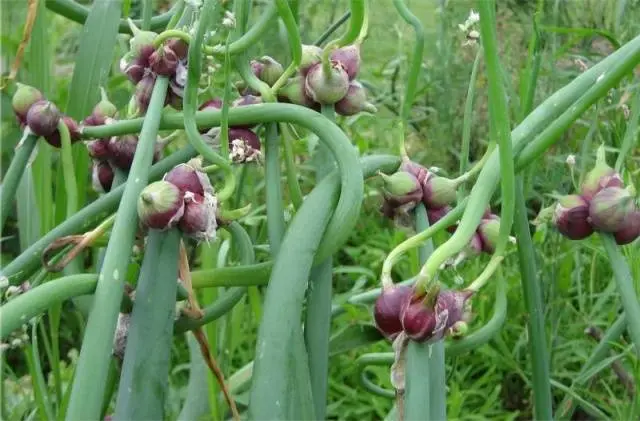
A few weeks before planting, onions are brought into the house. So that the culture does not give arrows, the sevok must be thoroughly warmed up.
To do this, the bulbs are sorted out and placed in a dry and warm place, with a temperature not lower than 25 degrees.
Warmed bulbs must be disinfected. For these purposes, you can use the solution:
- salt;
- copper sulphate;
- potassium permanganate.
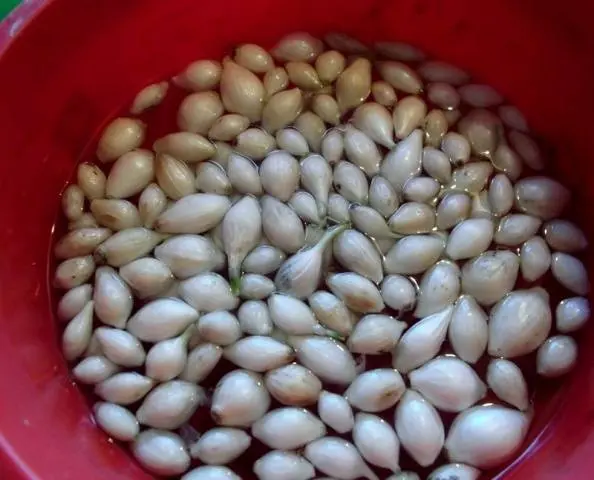
After processing, the bulbs are dried, now you can start planting. Plant onions in this way:
- The soil needs to be prepared in the fall. For onions, a well-lit area with neutral acidity nutrient soil is chosen. The earth is fertilized with humus or compost and dug up to the depth of a spade bayonet.
- In the spring, as soon as the snow melts and the earth dries out a little, you can apply mineral fertilizers and dig up the earth again on the site.
- The soil can be abundantly watered with copper sulphate dissolved in water; for more effective disinfection, the soil can be covered with a film.
- 10-14 days after treatment, you can proceed to planting onions.
- First, beds are made, observing a distance of 25-35 cm between rows.
- The prepared bulbs are inserted into the ground with your fingers, pressing down a little. Onions should not protrude above the soil surface, but it is also impossible to immerse the heads in the ground too much.
- It is not necessary to water the beds immediately after planting. The first watering of onion plantings is done in two weeks.
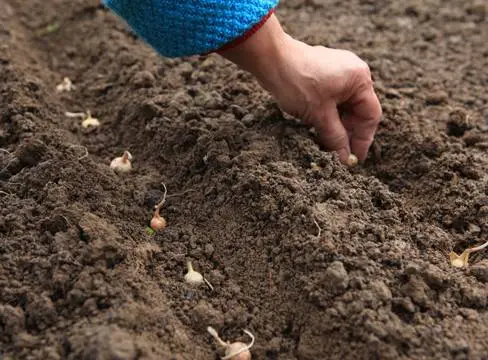
What is onion care
Onions, in principle, the culture is very unpretentious, the whole care of this vegetable is as follows:
- Plants should be watered as needed, that is, when the soil between the rows becomes too dry. As a rule, this is once a week. But the frequency and extent of watering can vary significantly depending on weather conditions.
- Fertilizing onions planted in nutrient soil, in principle, is not necessary. If since autumn the land on the site has been fertilized with compost or humus, then in spring the onion beds can not be fed. When the green mass grows too slowly, gardeners still use mineral components to feed the crop. It can be both purchased fertilizers and organics, for example, chicken manure dissolved in water.
- Onions are afraid of fungal infections, in order to prevent their spread, you need to monitor the moisture content of the soil. It is necessary to prevent infection of the culture with fungi by treating the onion beds with fungicidal agents. You also need to ensure that midges or other dangerous pests do not attack the onion.
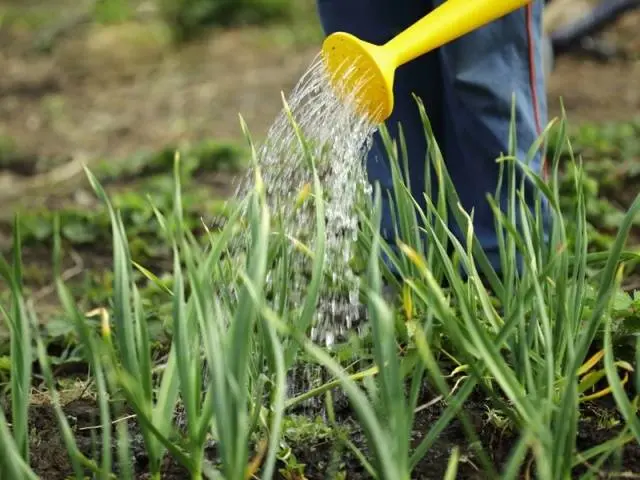
How to grow winter onions
To a greater extent, due to the fact that onion sets are poorly stored and gardeners usually lose most of their stock of planting material by spring, some farmers plant onions in the fall.
This method can be used both for sowing nigella and for planting heads of onion sets. To get greens, it is enough to sow the seeds, and the seeds will have to be planted on the head. But for the effectiveness of this event, you need to choose suitable, cold-resistant varieties that can endure frosts.
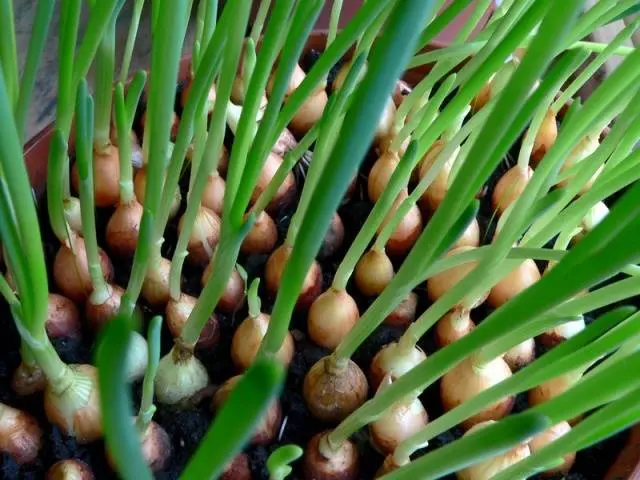
You need to plant onions right before the onset of frost, but when the ground has not yet cooled too much. The most suitable time for landing in the central part of the country can be considered October 20-25.
Onions are planted in the usual way, as well as in the spring. When severe frosts begin, plantings are covered with spruce branches or dry hay – this will protect the seeds from freezing.
In the spring, the shelter is removed even before the onset of heat, so that the bow does not trample. It is necessary to choose areas for planting winter onions from which the snow melts early, and the ground dries quickly under the sun’s rays.
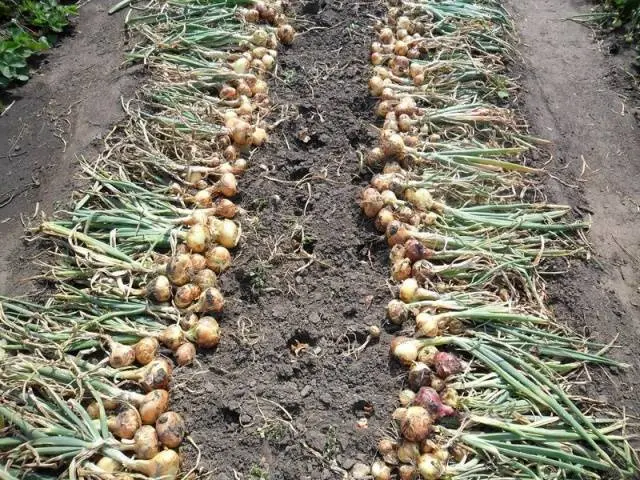
Growing and caring for onions is not particularly difficult – even inexperienced beginners can cope with this task. It remains to choose a variety and decide on the method of planting the crop – and the harvest of large bulbs is guaranteed. And the following video will help gardeners:









